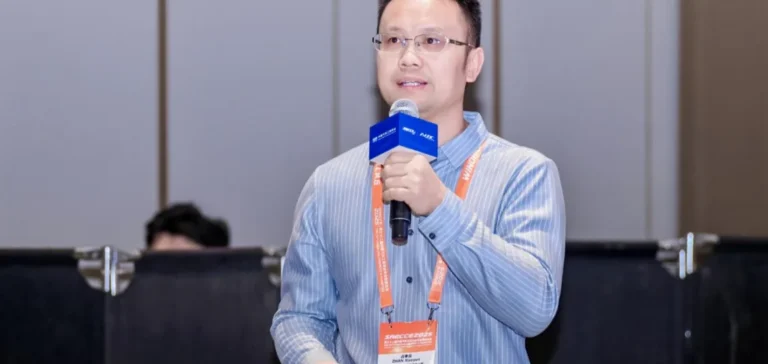At the 32nd China Society of Automotive Engineers Congress & Exhibition (SAECCE 2025) in Chongqing, Chinese manufacturer BAK Battery unveiled the latest advancements in its semi-solid batteries, highlighting a tangible transition from research to industrial production. These developments include an in-situ solidification method that reduces liquid electrolyte content to under 10%, a key criterion for improving safety without compromising energy density.
Targeted performance for various industrial sectors
Cells produced on BAK’s pilot lines reach up to 390Wh/kg, with 43Ah, 63Ah, 68Ah and 70Ah formats. These capacities are aimed at a broad range of applications from electric vehicles (EVs) to electric vertical take-off and landing aircraft (eVTOLs), two-wheelers, and digital security devices. The company highlights the compatibility of its cells with existing production lines, thus lowering barriers to large-scale adoption.
BAK’s digital security batteries, available in 1.2Ah and 7Ah formats, have demonstrated high stability under penetration and short-circuit tests, meeting the demands of critical environments. For eVTOLs, 4C to 8C fast-discharge cells allow for accelerated charging, responding to the needs of low-altitude air transport.
Extended lifespan for two-wheelers and electric vehicles
In the two-wheeler segment, combining in-situ solidification with oxides allows for up to 3,000 cycles with a remaining capacity of at least 70%, addressing durability and range requirements. For electric cars, BAK reports 300 to 400Wh/kg cells retaining more than 80% of their capacity after 1,000 cycles, making them suitable for long-range and lightweight vehicles.
The company’s development strategy is based on an iterative approach driven by user feedback: scenario-specific needs guide technical direction, which in turn shapes product upgrades. This cycle is intended to accelerate the rollout of all-solid-state batteries, leveraging already proven semi-solid solutions.
A rapidly expanding global market
According to the 2025 Blue Book on High-Quality Development of Solid-State Batteries, global shipments of solid-state batteries could reach 614.1 GWh by 2030, with 85% coming from semi-solid cells. The market would then surpass RMB100bn ($13.7bn), reflecting a shift toward safer and higher-performance systems.
BAK Battery is capitalising on this trend by ensuring production is adaptable to multiple use cases. The company thus positions itself as an industrial player capable of combining technological maturity with market relevance in a rapidly evolving sector.





















